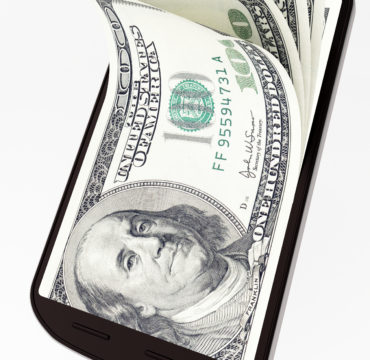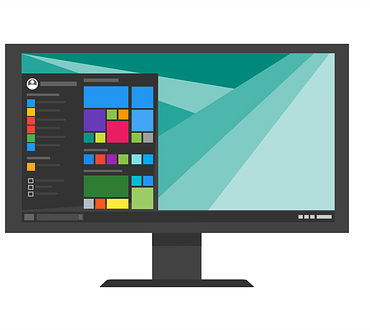Fees...The Games Mobile Providers Play
January 3, 2022
By Mike Breier
 Have you ever had a mobile service provider or carrier charge you for your random and unpredictable jumps in billing? Have they arbitrarily changed their policy that increases your pricing without warning? Or maybe they’ve increased the price of your service because of constant rep turnover but never offer refunds. These are just some of the ways cellular companies game the system to maximize profits…which is just a business term for charging you more for less.
Have you ever had a mobile service provider or carrier charge you for your random and unpredictable jumps in billing? Have they arbitrarily changed their policy that increases your pricing without warning? Or maybe they’ve increased the price of your service because of constant rep turnover but never offer refunds. These are just some of the ways cellular companies game the system to maximize profits…which is just a business term for charging you more for less.
In this blog post, we will dive into the world of cellular companies and all their shady practices. You may be surprised to find out how much power these carriers have over us – it is not always by our choice or with our consent!
Recommending Unnecessary Plans
This is one of the biggest problems with carriers – instead of trying to help you save money, they are pushing specific plans on you that can end up costing more! This happens even when reps aren’t trying to upsell you but are limited by their company’s horrible plan designs! We all know how bad it feels to be talked into a plan that ends up being worse than what we had before.
Fees Galore
Everyone knows cell phone carriers charge fees. It’s part of the business. We all know we will be charged for things like data, roaming charges, and text messaging fees – but these aren’t even half as bad as some other fees that carriers have been known to charge! A few of these fees include:
- Customer Retention Fees
- Line Reactivation Fee
- International Roaming Fee
- Universal Service Fund
- State Telecommunications Excise Surcharge
- Regulatory Charge
- Administrative Charge
- Telco Recovery Fee
- Account Spending Limit
- Data Stash Fee
- Mobile Hotspot Fee
- Cell Phone Replacement Fee
- Account Transfer Fee
- Cell Phone Return Fee
Customer Retention Fees
This fee is a monthly recurring cost just because you are still their customer. Depending on your carrier and plan type, it can range from $0 – $15 per month. These types of fees were implemented to recoup costs associated with keeping you as a customer or somebody who was going through the process of canceling their service (which involves much more time, money, and effort).
Line Reactivation Fee
Have you ever considered the $36 fee that carriers charge for “line reactivation”? That is, if your line has been deactivated because of non-payment (which can be caused by many things), they want to make sure it doesn’t stay inactive. This one seems like a fair enough price – but then consider their fee of $36 to transfer your number from one phone to another. It seems like a lot just for SIM cards, doesn’t it?
International Roaming Fee
This fee is one that you will typically only see when traveling internationally. You’re already paying for an international plan, and yet they still want more money! This roaming rate can be as high as $20 per MB in some countries (that’s like 20x the cost of using your data at home). Why should we have to pay even more than what we are already paying?
Universal Service Fund
The United States Federal Communications Commission has decided that all Americans deserve access to telecommunication services such as cell phone service regardless of their income level or location. That is why there is a Universal Service Fund the cell phone carriers pay into – but carriers do not share this sentiment, so they pass the fees on to us.
State Telecommunications Excise Surcharge
These surcharges are state-specific fees that have been implemented to assist with funding projects such as transportation, education, and healthcare – just like the US Federal Universal Service Fund mentioned above!
Carriers take advantage of this by charging us more for services we already pay for – it’s another sneaky way they make more money off their customers.
Administrative Charge
Carriers often charge for administrative tasks such as paper bill copies/paper bill mailings and installing additional lines or features (such as an activation fee). While these charges may seem small now – especially when you compare them with those other fees we’ve discussed here – they all add up in the long run!
Telco Recovery Fee
This one is pretty self-explanatory: it’s yet another surcharge that carriers like Sprint implement into their billing systems specifically designed to help recover costs from providing services to customers. This can be anything from roaming charges, overages, regulatory programs – whatever they want!
Mobile Hotspot Fee
We’ve all been there: we want our phone’s internet capabilities when we’re out and about and not near WiFi access – so why should we be charged extra? Carriers are well aware of this, so they make sure to charge you an additional fee for the privilege of using your phone as a hotspot. The cost can be anywhere from $0-$15 per month – but it’s still ridiculous! Why should we be penalized when our data cap is already low enough that making one or two trips out into the world will push us over by several GBs?!
Cell Phone Replacement Fee
Suppose anything happens to your device (such as water damage). In that case, carriers usually offer cell replacement programs that cover any costs associated with replacing their customers’ phones – however, there’s always a catch! These plans have hefty fees built right in, and although most carriers waive them if you sign up for auto-replacement, the fee is still there!
Account Transfer Fee
If we had to choose another word here, it would be frustrating… especially since this also happens to be the most common fee that wireless carriers charge their customers. If you want to switch your service from one carrier/phone number to another, they will make sure they get paid for it by charging this monthly cost!
Cell Phone Return Fee
If you were under contract with a carrier and decided at some point down the road that you wanted to cancel your plan or go back to using an older phone without signing up for new cell service – there’s always going to be a catch! Carriers are well aware of how much money they can lose when somebody decides not to renew their account. So they have put together these return fees to ensure that losses aren’t as significant as possible.
Unlimited Data?
This is one of the most controversial topics in recent years, but it remains an issue nonetheless. Most carriers have already begun implementing data caps into their plans – some as low as 300MB per month! If you go over that limit on any given plan, they will charge your account at a rate of $15-$20 PER GB. This means that if you are streaming music or uploading/downloading large files regularly (like we do here), expect to pay more each month for these activities than what your original monthly bill was supposed to cover.
Random Billing Increases
It’s inevitable, but it still sucks every single time… no matter what carrier you use or how happy you are at the moment with your cell service– they’re all planning on increasing their prices in some way. Whether that means raising the cost of your monthly plan by $20-$25/month or adding additional fees onto existing services (like text messaging), expect to pay more than advertised if you want to keep using this company for another year!
Contract Expiration Fee
If you didn’t know already: wireless carriers make a lot of money from selling new phones to their customers. If somebody cancels their service (or wants to switch, like discussed above) before the end of their contract – they will make sure that somebody else pays for it by charging an additional fee! This can also go under ‘unexpected’ fees – but we think it deserves its spot due to its frequency and severity.
Policy Changes Increase Pricing
What’s worse than a random fee increase? How about being told that fees are going up, but you don’t know by how much or when it will take effect. Unfortunately for wireless customers – this is often the case…, and there isn’t anything we can do about it! If you want to avoid having an unexpectedly large cell phone bill at some point down the road – be sure to keep track of any policy change announcements so that you have time to prepare yourself ahead of schedule! Sometimes these changes go into effect immediately – while other times, they may not happen until after your current contract ends.
Contract Obligations
Most phone plans, especially those with an expensive device attached to them, require that you sign a two-year or more-term contract agreement. This means that you are locked into paying monthly fees for the duration of your plan and not permitted to switch carriers without facing penalties like early termination fees (ETFs).
Early termination fees
An ETF is an early exit fee in which you are required to pay the remaining monthly bills, in addition to canceling your plan and returning or paying off any device(s) that came with it. This can be a hefty price tag, depending on how far into your contract you currently are.
These fees all started after the Federal Communication Commission (FCC) ordered telecom companies in 2013 to unlock customer devices once their contract is fulfilled or reach a specific time frame of having had service with the carrier for at least 90 days. This meant that customers could shop around and find better deals on other networks without purchasing new hardware, which would incur another cost altogether.
What can you do about all these fees adding up?
Wireless carriers are a necessary evil in this day and age. There’s no escaping them, but that doesn’t mean we have to simply accept everything they say either! There are options, even within your existing carrier. Televon is the Carrier Agnostic expert that can help you navigate these changes, unexpected charges, and contractual roadblocks.
Sources
- Webber, R. (2017, December 4). Council post: What are all those hidden fees on your cell phone bill? Forbes. https://www.forbes.com/sites/forbesfinancecouncil/2017/06/20/what-are-all-those-hidden-fees-on-your-cell-phone-bill/?sh=608224c1791c
- What are all of the fees on My Cell Phone Bill? Community Phone. https://www.communityphone.org/blogs/cell-phone-bill-fees
We hope this information helps you target your IT Cost Management efforts. We all have more to do than time allows. If you want to get the latest news and best practices focused on IT Efficiency, subscribe to our Monthly Newsletter below.
Get more insights like this from our monthly newsletter
Subscribe
Follow Us
Email: contact@televon.com
Phone: (724) 325-1660
Copyright © 2023 Televon.
Televon® Plenteous Consulting, LLC.
All rights reserved.












